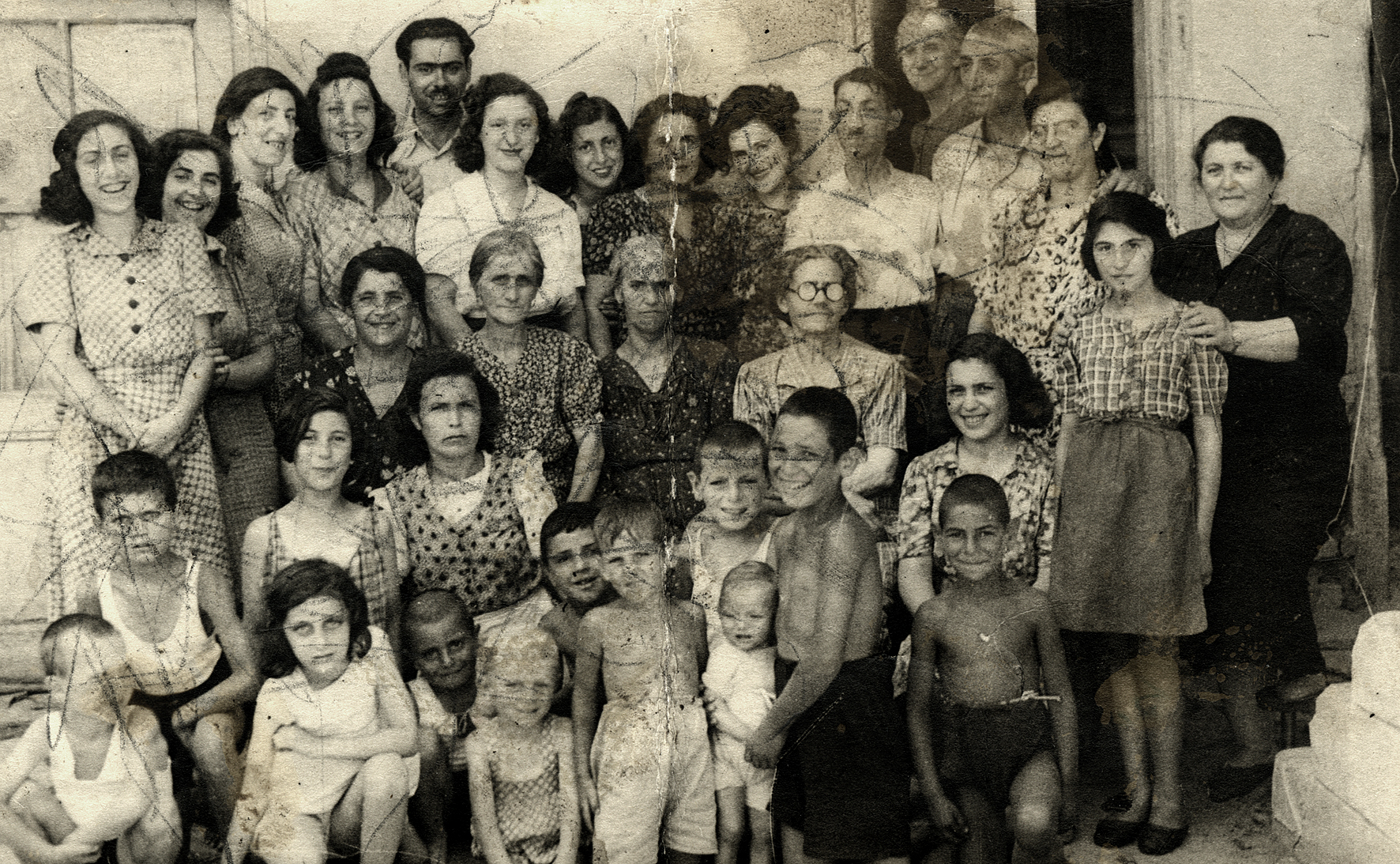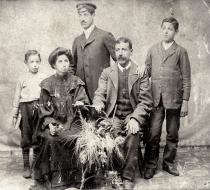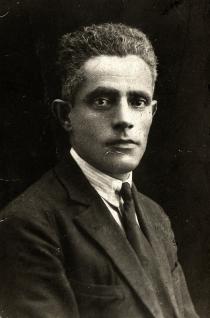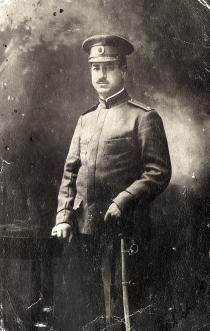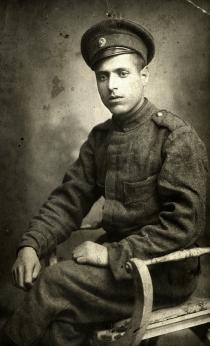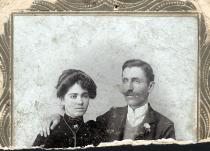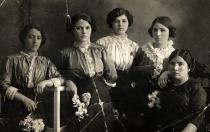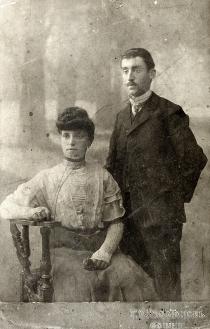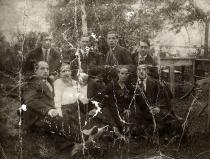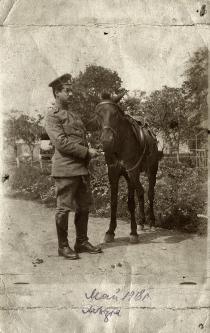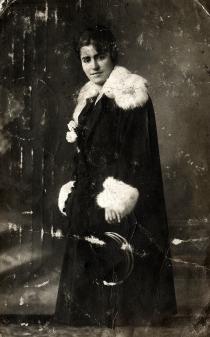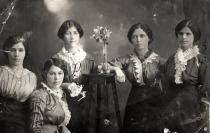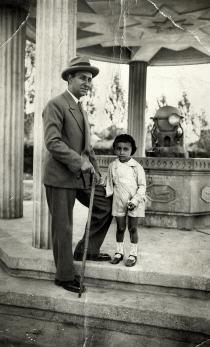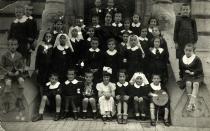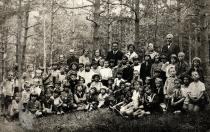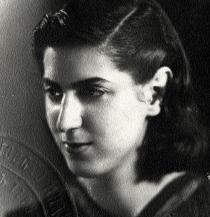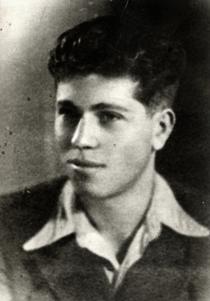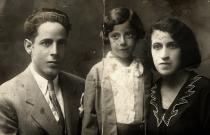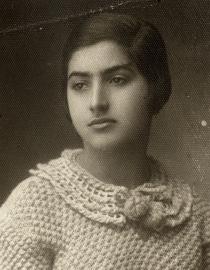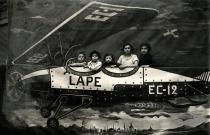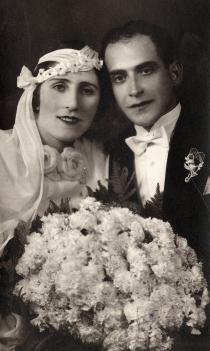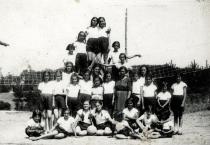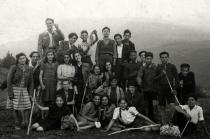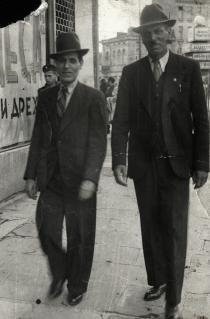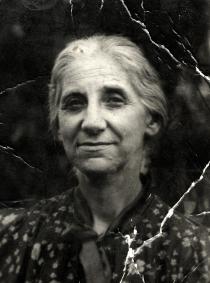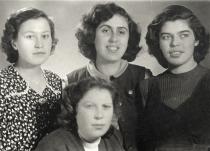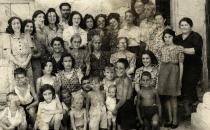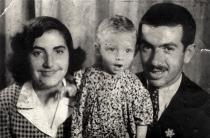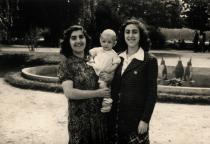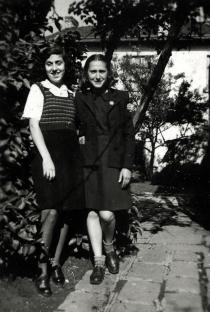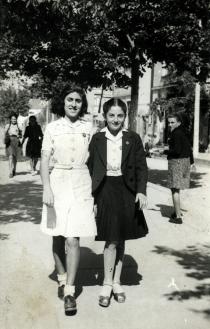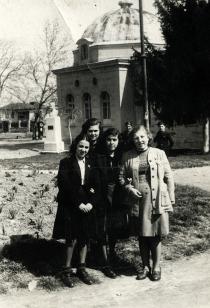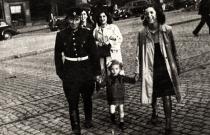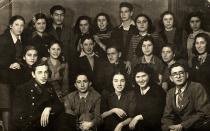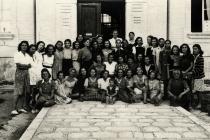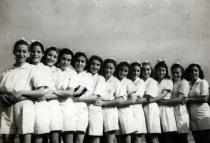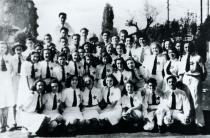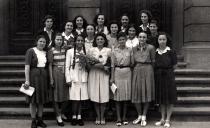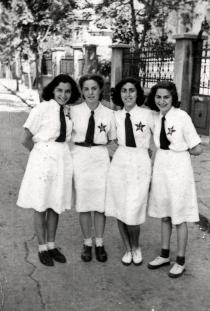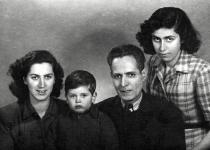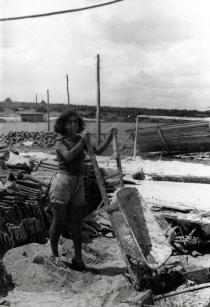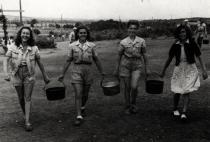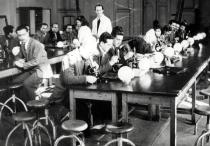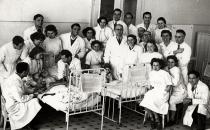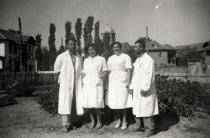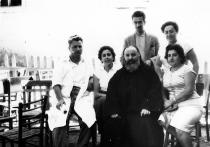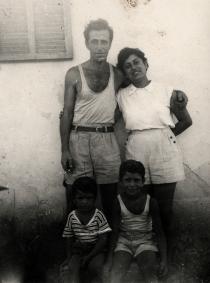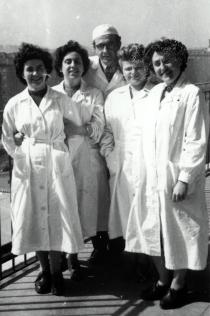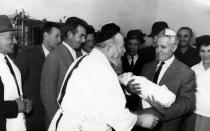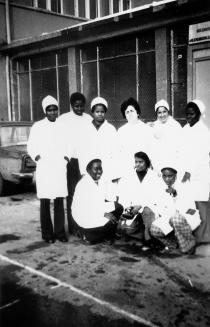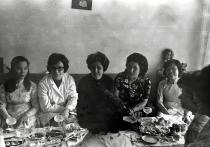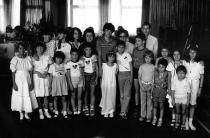These are the people with whom we lived in Vidin during the internment during World War II. We all lived in one yard under horrible conditions. I am standing first from left. Next to me is my sister Klara Levi. My mother Rebeka Isak is behind the group, to the right. The baby in white in the centre is Klara's child. The second man from behind suffered from epilepsy. The woman in black - first from right, standing - was his mother. We were all terrified when he, awfully crying, was falling on the floor in one of his fits. We were scared that something might happen to him and we tried not to bother him. We had a terrible life - each family in one room.
Before the Holocaust there were various manifestations of anti-Semitism (beyond the governmental policy). For example, relatives of ours from Kiustendil were complaining that a boy who was a Brannik was constantly harassing them. But here, in Sofia, in our close circle of people, there was no such thing. When a rumor spread that Jews were gathered in camps, enormous fear, actually paranoia, rose among us that something very bad was about to come. We received letters - orders for internment - that stipulated on which day, at what time, with how much luggage and where we had to report ourselves. A real tragedy took place on the streets of our quarter. My eldest sister, Klara, was about to be married and she had prepared a dowry for herself. But it had to be sold with the rest of our house and household goods. We took everything out to front of the house and the neighbors and other people bought it. We were only left with a few bundles.
The first town that we were ordered to go to was Vidin. We didn't know anybody from there. I remember the sad picture from the station to the Jewish school (they took us there) - a long train of wretches and children. It was really tragic, like in the movies. The rooms of the Jewish school were large and several families were put up in each one. To keep simple order they outlined borders with chalk to show each family where it had to settle, with beds arranged on the floor, and so on. We got food from a common kitchen, which I reckon was organized by the synagogue. They used to cook there with margarine that smelled of soap - it had nothing to do with what we have nowadays. I have always been a poor eater and thin. I couldn't even touch that food. It was so terrible. But we went to the kitchen with our mugs. We had to eat after all.
Later we moved to Kiustendil. It was better in Kiustendil because we settled in my mother's house. We had a whole room, and more space. My father took a part-time job - per day, even per hour - whatever he was able to find. We, the children, were bigger, so we went to the town's agricultural school every day and we were given tasks there.
